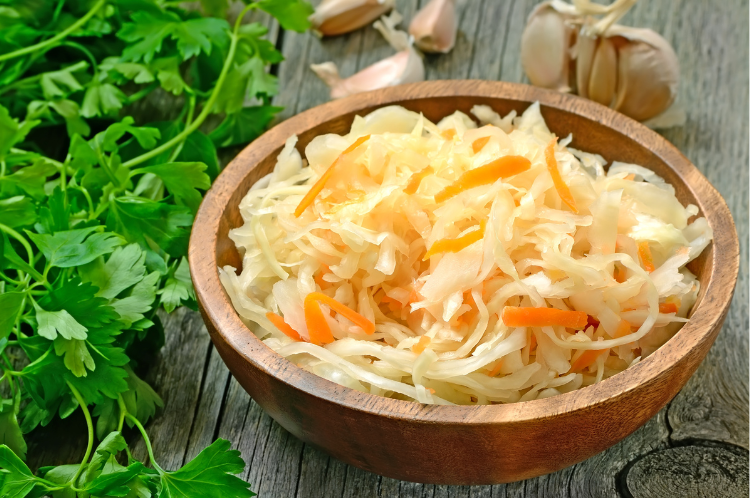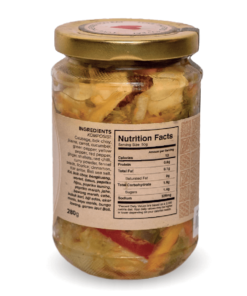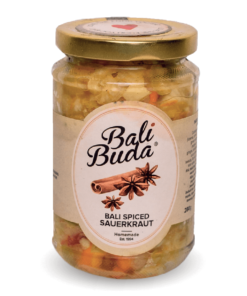Blog
7 Health Benefits From Fermented Foods
Fermented foods benefits are real! There is a reason why they have been consumed for centuries across different cultures, and their popularity is now experiencing a resurgence. These unique culinary creations undergo a transformative process that not only enhances their taste but also provides numerous health benefits. In this article, we will explore the different types of fermented foods, delve into the importance of including them in our diets, and understand why these tangy delights are more than just a passing trend.
Types of Fermented Foods
Fermentation is a natural process that involves the breakdown of carbohydrates and other organic compounds by microorganisms like bacteria, yeast, or molds. This process results in the formation of beneficial enzymes, probiotics, and other bioactive compounds. Some common types of fermented foods include:
Yogurt
Milk fermented with specific strains of bacteria like Lactobacillus bulgaricus and Streptococcus thermophilus, creating a creamy, probiotic-rich delight.

Kimchi
A traditional Korean side dish made from fermented vegetables like cabbage, radishes, and garlic, seasoned with a variety of spices.

Kombucha
A fermented tea beverage made using a symbiotic culture of bacteria and yeast (SCOBY), resulting in a fizzy and tangy drink.

Tempe
A fermented soybean product originating from Indonesia, rich in protein and nutrients.

Miso
A Japanese seasoning made from fermented soybeans, rice, or barley, used in soups and marinades.

Pickles
Cucumbers or other vegetables preserved in brine, leading to the creation of probiotic-rich pickles.

The Importance of Fermented Foods
Incorporating fermented foods into our diets can significantly contribute to better overall health. Here are some compelling fermented foods benefits:
1. Enhanced Digestion
The probiotics produced during fermentation are beneficial bacteria that support gut health. They aid in digestion, improve nutrient absorption, and help maintain a healthy balance of gut flora.
2. Strengthened Immune System
A significant portion of our immune system resides in the gut. By promoting a healthy gut environment, fermented foods can enhance immune function and reduce the risk of infections.
3. Improved Nutrient Bioavailability
Fermentation breaks down complex compounds in foods, making essential nutrients more bioavailable and easier for the body to absorb. For instance, fermenting grains can increase the availability of certain vitamins and minerals.
4. Reduction of Anti-Nutrients
Fermentation reduces the levels of anti-nutrients, such as phytic acid, found in some foods. Anti-nutrients can hinder the absorption of minerals, and fermenting grains and legumes can mitigate this effect.
5. Management of Lactose Intolerance
Fermented dairy products like yogurt contain lower levels of lactose, making them easier to digest for individuals with lactose intolerance.
6. Maintenance of Weight and Blood Sugar Levels
One of the very interesting fermented foods benefits, is that they can positively influence metabolism and insulin sensitivity, potentially aiding in weight management and blood sugar regulation.
7. Mental Health Benefits
Emerging research suggests a connection between gut health and mental well-being. The probiotics in fermented foods may have a positive impact on mood and mental health.
How to Incorporate Fermented Foods in Your Diet?
Introducing fermented foods into your diet is simple and delicious.

Here are some tips to get started:
-
Gradual Inclusion: If you’re new to fermented foods, start by incorporating small portions into your meals to allow your digestive system to adjust gradually.
-
Try Different Varieties: Experiment with various types of fermented foods to find the ones that suit your taste preferences best.
-
Make Your Own: If you’re adventurous, consider making your fermented foods at home. There are many beginner-friendly recipes available online.
-
Pairing Possibilities: Add fermented foods as side dishes or toppings to complement your main meals. For example, kimchi can be a flavorful addition to rice or noodle dishes.
-
Yogurt Parfaits: Enjoy yogurt with fresh fruits and nuts as a wholesome and probiotic-rich breakfast option.
Takeaway
Incorporating fermented foods into our diets is a wise decision for both our taste buds and overall health. From yogurt to kimchi, these tangy delights offer a wide array of health benefits, including improved digestion, a stronger immune system, and better nutrient absorption. As more research continues to highlight the significance of gut health, fermented foods are gaining well-deserved attention. So, why not embark on a culinary adventure and add these beneficial foods to your daily meals? Your taste buds and health will surely thank you for it!

 Indonesia
Indonesia





